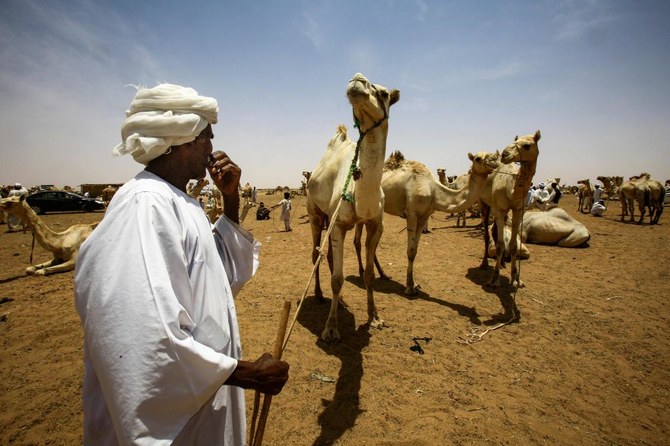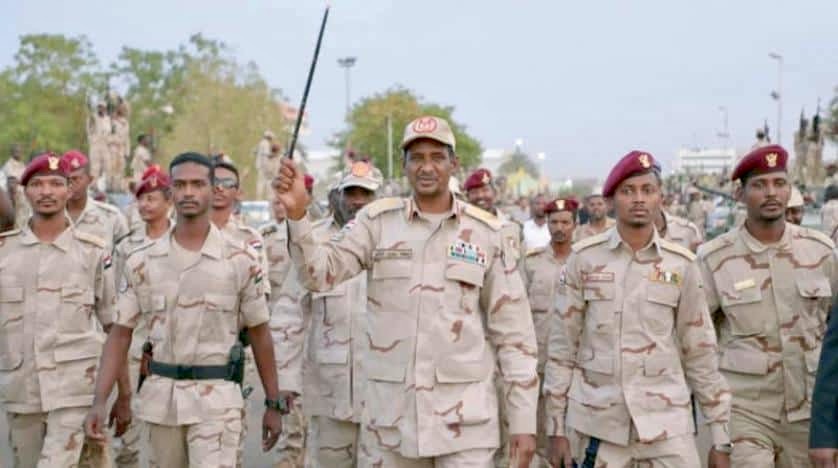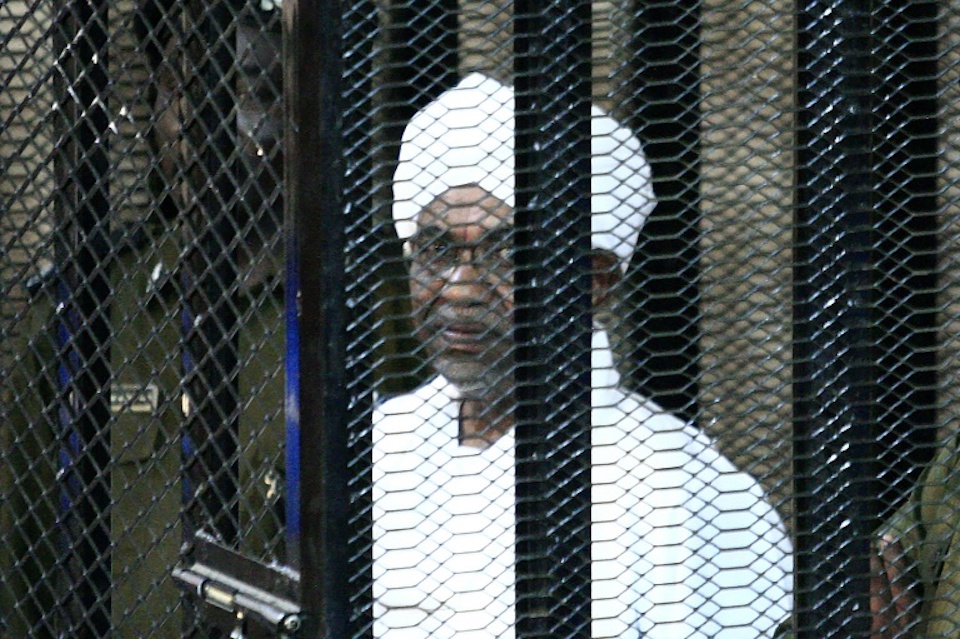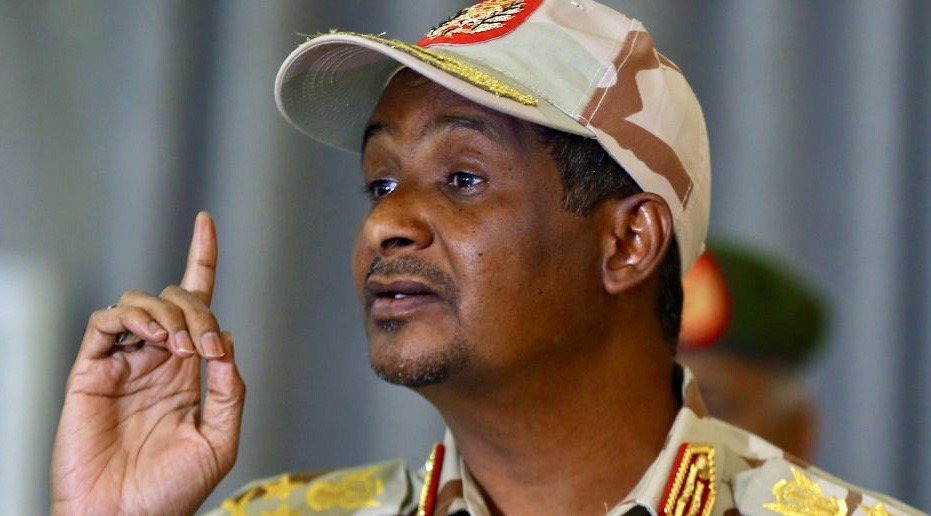The Hemedti enigma: prince, pauper, statesmen, state-terror
This report was originally written for and published on the pan-African news platform, The Continent.
19 March 2024
Mohamed Hamdan Dagalo, known by his nickname “Hemedti”, the leader of the infamous paramilitary Rapid Support Forces (RSF) in Sudan, appears to be a living contradiction.
A diplomat and peacemaker abroad while a terror and tyrant to many Sudanese communities at home. A man from humble, pastoral beginnings –to one of the wealthiest men in the country.
While Hemedti shakes hands with international actors, pledging his support for opening humanitarian corridors to help the war affected – the other hand directs the RSF to target African communities in West Darfur in what the U.S. Congress has labelled a genocide.
For the past 10 months, Hemedti has fought a war of political and economic dominance with his once military partner-turned-enemy, Lt. Gen. Abdelfattah al-Burhan from Sudan’s national army. The conflict between the army and the RSF has led to the displacement of roughly 8 million people, 15% of the country’s population, and has left nearly 18 million people facing severe food shortages. The indiscriminate bombings, mass looting and assault on civilians from both warring parties have led many to believe the conflict is not so much between two armed factions but a war against the Sudanese people.

The camel trader
Born in 1973, Hemedti is the nephew of Juma’ Dagalo, the chief of the elite Awlad Mansour clan of the Darfuri Arab Mahariya Riziegat tribe. According to sources from the camel-herding, northern Rizeigat tribal confederation, Hemedti came from relatively humble beginnings as a camel trader who left formal education in the third grade. The same sources claim Hemedti was introduced to the war in Darfur after gunmen attacked his trade envoy –killing several members of his family and looting his camels.
As a teenager, Hemedti saw the former dictator Omar al-Bashir rise to power and develop an expansive array of often ethnically driven militias to quell rebellions and maintain power.
Darfur rebel groups developed after decades of marginalization, primarily comprised of African farming communities, these groups made significant military advances against Bashir’s government in 2003-4.
To counter the advances of these groups, Bashir and his ruling National Congress Party (NCP) provided unbridled support to the Arabic, pastoralist tribal communities. It was here that the infamous Janjaweed (which loosely translates to “armed men on horseback”) was formed and provided a free license to target the state’s enemies with impunity.
Hemedti’s ascendancy began in the early 2000s from his effectiveness as a commander under Bashir’s Janjaweed militia used to carry out the Darfur war. From the beginning of his career, Hemedti has been implicated in war crimes against civilians. On 23 November 2004, Hemedti led a state-run, coordinated attack using the Janjaweed and army against Adwa village in South Darfur State, killing 126 people. It was the same deadly, systematic formula the state used in most attacks in Darfur: army warplanes would bomb indiscriminately from above while the Janjaweed would kill and loot from the ground. “Men were immediately shot, while women were kept in detention for two days,” wrote award-winning journalist Haj al-Warrag, describing the attack. “Young girls were raped by the attackers in the presence of their mothers. All victims of the attack belonged to the Fur tribe.”

The formation of the Rapid Support Forces
Despite a brief stint fighting against the NCP regime in 2008, Hemedti again joined ranks with Bashir and established the “Rapid Support Forces” (RSF) as a state paramilitary body in 2013 under the oversight of the infamous National Intelligence and Security Services (NISS). The new paramilitary unit’s success in quelling resistance by Darfur’s numerous rebel groups between 2013 and 2017 gained him recognition to the extent that Bashir referred to Dagalo as Hamayti – or “my protector” – soon coined into the nickname “Hemedti”.
“Bashir created and developed the RSF to prove his regime against coups,” says the founding director of Sudan Transparency & Policy Tracker, Suliman Baldo. “When they proved more effective than the army as a counterinsurgency force, both Bashir and the army leadership were happy to have a proxy force doing their work for them.”
Bashir’s bolstering of the RSF was also a way to protect him from former allies, says Sudan researcher and writer Joshua Craze. Hemedti and the RSF were used to guard Bashir against increasingly disgruntled Janjaweed leaders in the periphery such as Musa Hilal and the ambitions of his former security chief Salah Abdalla “Gosh” in central command.

Gold given right
Hemedti, his brothers Abdelrahim and Al-Goni Dagalo, and other members of the Dagalo family and Awlad Mansour clan instrumentalised the ruling party’s control of the Sudanese state to develop the RSF as a formidable economic and security institution. Modelled by the NCP’s ownership of multi-sectoral parastatal enterprises, the Dagalo-owned Al-Junaid Company wielded state regulatory and enforcement powers to carve out monopoly rent from portions of Sudan’s gold mining sector.
While the Al-Junaid Company demands mining licenses, the heavily armed RSF could effectively seize mining concessions –including the once gold-rich Jebel Amer gold mines in Central Darfur State, with full consent from Bashir.
According to researcher and columnist Abu Dhar Ali Al-Amin, Hemedti’s quick economic gains should not surprise anyone since Bashir effectively handed Hemedti’s wealth “on a plate”. Bashir gave Hemedti and his brothers gold mining concessions along with lucrative trade opportunities in livestock and grains with no state oversight, he added.
Al-Junaid is owned by three members of the Dagalo family: Hemedti’s brother, Lt.-Gen. Abderahim Hamdan Dagalo, and Abdelrahim’s two young sons, while Hemedti is on the board of directors. Leaked company documents suggest the RSF enjoy financial autonomy from the state since they hold bank accounts under their name.
“There Is a lot of luck in Hemedti’s story,” Craze told Ayin. “When Sudan lost oil resources, it focused on gold –and gold is not oil. You need a military force to control it, to oversee labour and transport.” Hemedti was the right person at the right time to seize this opportunity, Craze told Ayin.

RSF and Yemen
Hemedti also exploited international security contracts signed under the NCP government under Bashir. From 2015 Hemedti sent his forces to fight Iran-aligned Houthi rebels in Yemen, allying with Saudi Arabia and the United Arab Emirates. A year later, the European Union supported an RSF-led migration control program – allowing Hemedti to ply his soldiers with combat experience, training, and payment. More RSF forces were dispatched to Libya to fight alongside General Khalifa Haftar, currying further favour from the UAE and, at the time, Egypt.
In 2017, the Rapid Support Forces Act was passed, allowing the RSF to operate as a “semi-autonomous force” whose leadership was directly appointed and managed by the president. Now the RSF could collect salary from government payroll while remaining somewhat independent from any state discipline, including economic ventures.
By this time, writes long-time Sudan researcher Alex de Waal, the RSF’s strength “had grown tenfold”. With 70,000 men and over 10,000 armed pick-up trucks, “the RSF became Sudan’s de-facto infantry.” And while the RSF enjoyed these new changes, the command structure remained very much the same: comprised of Arab tribesmen from Darfur under the control of the Dagalo family.
“The Rapid Support Forces have turned into a private transnational mercenary company, a gold extraction and trading company, and an armed cultivator for Hemedti’s commercial empire,” Abu Dhar Ali told Ayin. “But all of this was not done based on the genius of Hemedti, but rather by whoever wants to employ him.”

Changing places and faces
When the 2019 pro-democracy protests broke out across the country, Hemedti took part in overthrowing the president in April of that year –despite being a long-time Bashir ally and benefactor under his nearly 30-year rule. Hemedti mirrored the pragmatism of some of Bashir’s security elites such as the former security chief Salah Abdalla “Gosh” and army Chief of Staff Awad Ibn Auf, who demanded the resignation of Bashir, possibly seeking the top seat for themselves.
Many see Hemedti’s dismissal of Bashir as political pragmatism –-he grew unpopular and needed to be replaced for the ruling NCP to maintain power. “Bashir was growing too unpopular,” says political analyst Mohamed Ibrahim. In one of the world’s longest pro-democracy movements, youth-driven protests took to the streets calling for a civilian government, tired of decades of corruption and political oppression under Bashir’s NCP government. “This engagement, coupled with the separation of South Sudan in 2011 made Bashir a liability and encouraged other actors to seek power,” Ibrahim added.
Separating himself from an unpopular dictator and ruling party, however, cannot be easy. Hemedti is heavily implicated in the 2003-4 genocide in Darfur under Bashir, the June 2019 sit-in massacre, and the October 2021 military coup. This may be one reason why Hemedti hired a Canadian public relations company to the tune of six million dollars to polish his image just two months after Bashir was removed from power.
In speeches, Hemedti routinely agrees to participate in peace negotiations. In late January, he met the former prime minister, Abdalla Hamdok, to negotiate humanitarian corridors to support the war-affected. In comparison, his military rival, Burhan, has refused to meet Hamdok and routinely rejects any political dialogue.
“He [Hemedti] is seeking legitimacy abroad that the RSF cannot earn domestically because of the conduct of its soldiers,” Baldo said. The RSF campaign of terror against the Sudanese people has diminished Hemedti’s future political credibility – inducing Hemedti to lead a diplomatic charm offensive abroad.
But Hemedti’s diplomatic language, Abu Dhar Ali says, is never his own. “Hemedti does not act, rather he performs an act –-he does not say, but rather repeats what he is dictated to say.”
Wealth and ties to wealthy actors such as the UAE have provided Hemedti a chance to polish his image and encourage regional and international actors to meet him. In comparison, Burhan has presented himself as a confused belligerent, refusing negotiations and making contradictory statements, Ibrahim said.
But while Burhan may be floundering, Hemedti cannot perform all his duties successfully. “He has to be three things all at once,” Craze said. “He is a military commander of a Darfuri-Arab paramilitary force, a statesman, and a businessman –whereby each position needs the other, but they all prevent him from doing anything with much success.”


